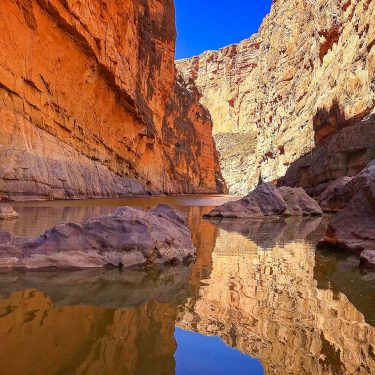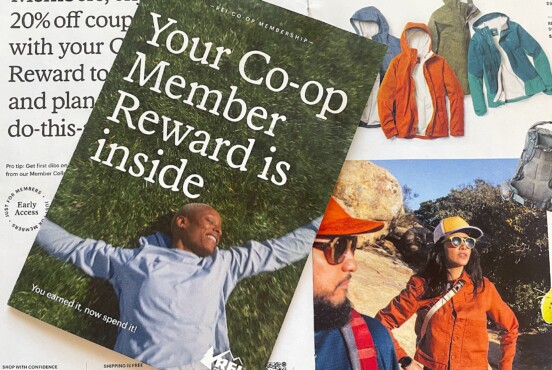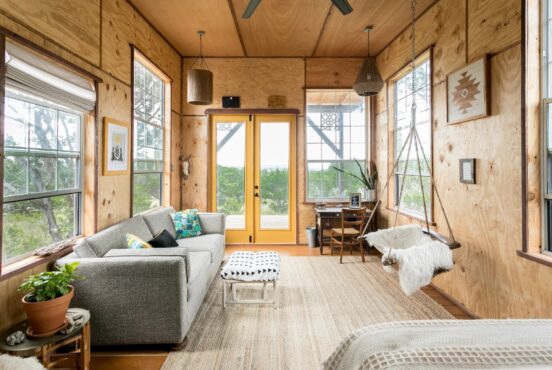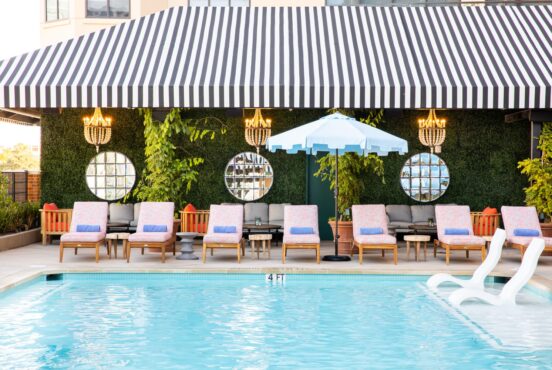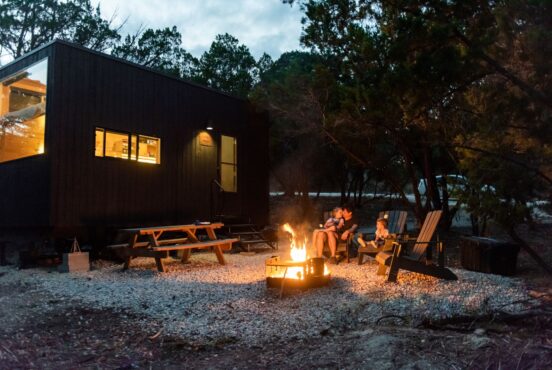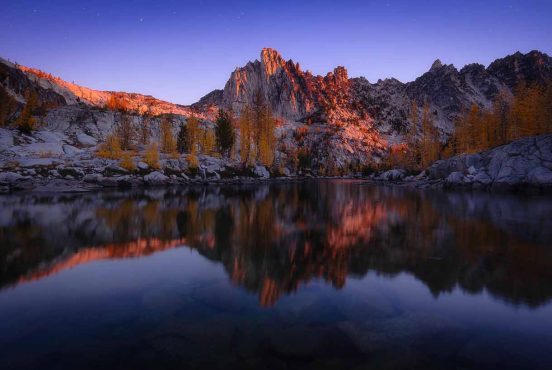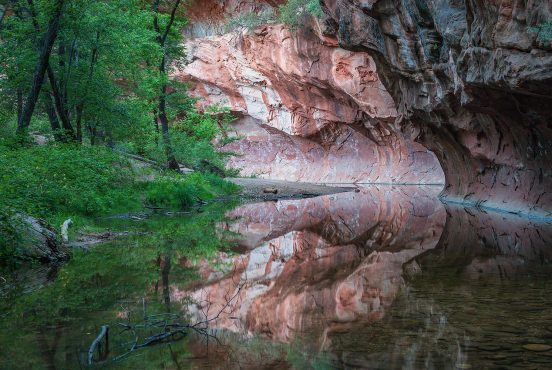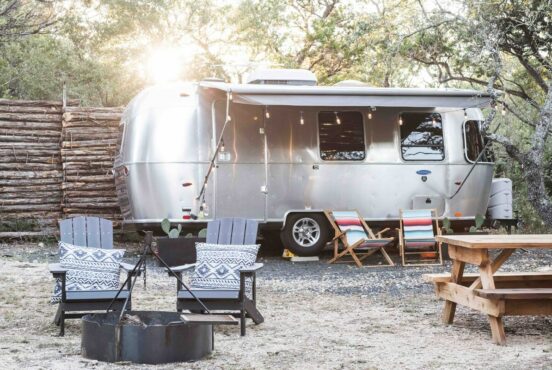Being in the wild is dope, and so is keeping it clean for future generations. If you’re hiking, camping or backpacking, you can minimize your impact on the environment with Leave No Trace principles and ensure everyone has a good time with basic trail etiquette tips. Now let’s get wild.
If you’re looking to grow personally or professionally, some quality time in the outdoors may be just the spark you need.
And OutPass Trekking founder Sarah Kettles says that’s exactly why she created OutPass Trekking.
Founded in December 2019, Outpass Trekking hosts wilderness camping and backpacking experiences to guide guests through the outdoors with a focus on spurring long-term growth and transformation. While Kettles’ background is in experience research, the inspiration to launch OutPass stemmed from her own memorable backpacking adventures.
So far, the Austin, Texas–based company has hosted two trips in Big Bend National Park. While the pandemic delayed future trips, OutPass Trekking intends to focus on the Big Bend region for their future mindfulness retreats, though it plans to host “Adventure Series” trips twice yearly outside of Texas.
We spoke with Sarah to learn more about the story and mission behind OutPass Trekking, what she’s learned from following her passion, and her advice for enjoying outdoor exploration.
Editors note: answers have been edited for clarity and length.
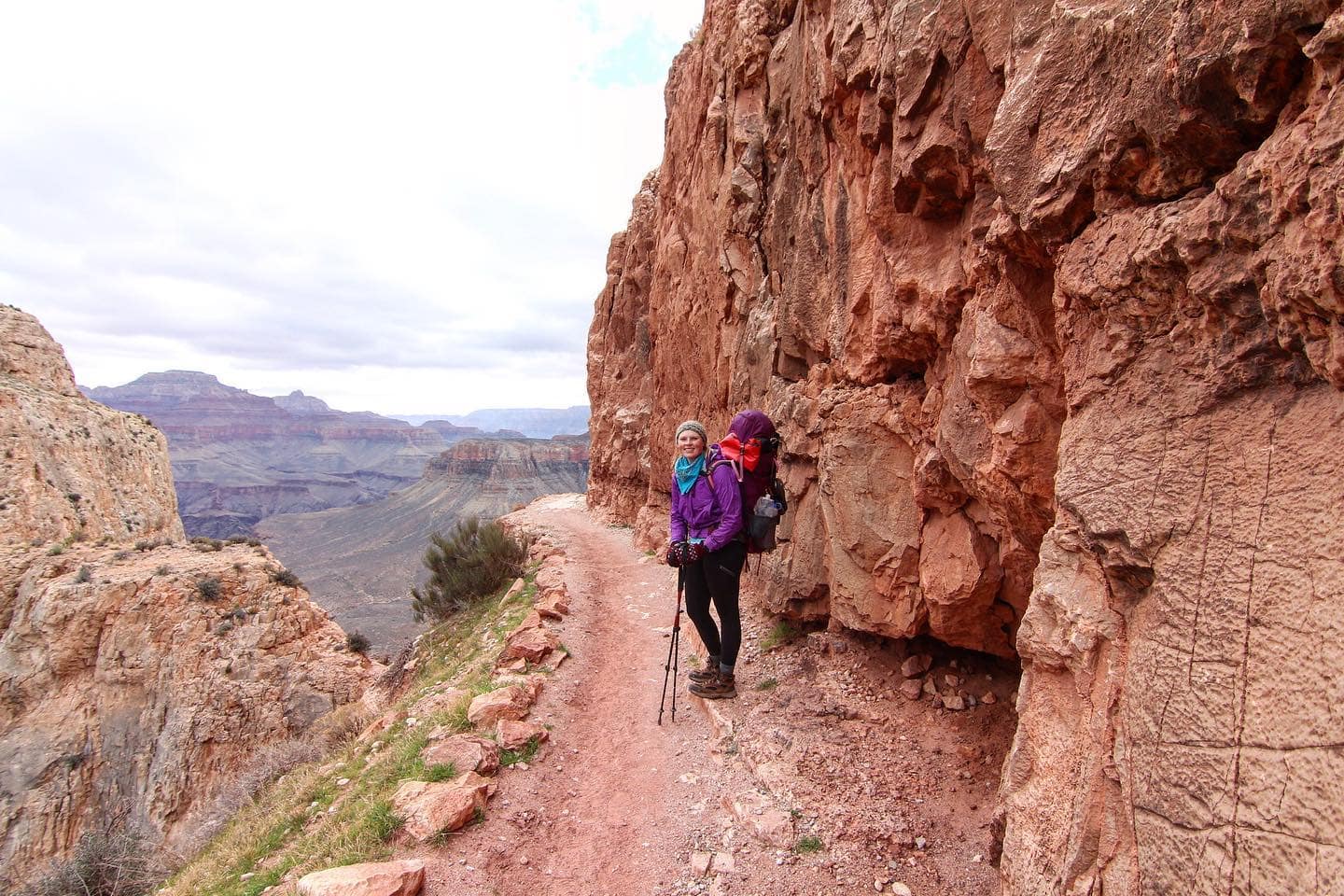
Writer: What inspired you to found OutPass Trekking?
Kettles: I was inspired by my first experience solo backpacking in 2016. I ended up unexpectedly solo about a week into hiking the John Muir Trail. And after all my training and preparation, I decided it was best to keep going even when my hiking buddy decided she needed to bail. I was scared to hike solo, but when I summited Mt. Whitney and officially finished the trail just two and a half weeks later, I realized that I felt lighter and freer than I ever had in my life. It was like I had spent a whole month meditating, except I hadn’t spent even one minute meditating.
I wondered briefly if it was possible to make this feeling and this experience part of my life in a more permanent way, but I settled for making backpacking and long trips in nature how I vacation and relax instead of pursuing it professionally. Fast forward a few years and I had hired a coach to help me focus on developing my career in technology. I thought I wanted to become an executive, but what I realized through working with my coach is that how I want to spend my time was pretty incongruent with corporate leadership.
I spent a few months digging deep into what I wanted to do next and ended up remembering how powerful my experience was along the John Muir Trail. The desire to build an experience that helps others connect meaningfully to nature via OutPass Trekking was developed from there.
Writer: What advice would you give to others pursuing their passion?
Kettles: The best advice I was given and have had the opportunity to practice nearly daily as an entrepreneur is the concept of high commitment and low attachment. Having high commitment to my goals keeps them front and center. They are never the thing to be sacrificed; only the methods of achieving them are. Low attachment is a complementary concept as it helps me stay flexible about the tactics I use to achieve my goals.
Especially during a pandemic, but really for all of life’s curveballs, being willing and open to change my trajectory while keeping my goals firm is the single most important thing I’ve done as an entrepreneur in this last year. It helped me stay excited and moving forward even when things felt like they weren’t going to work out.
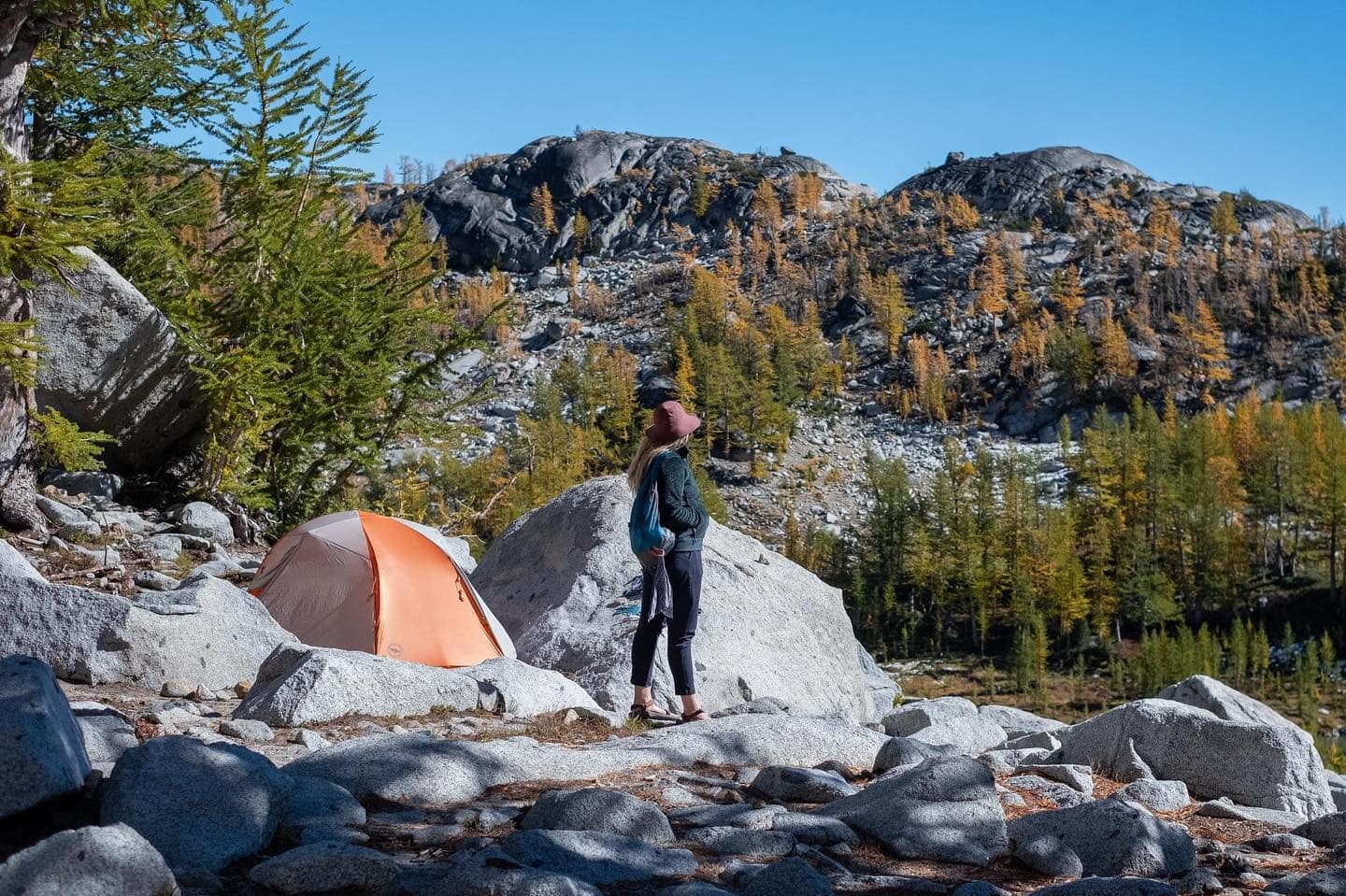
Writer: What tips do you have for those interested in starting their own outdoor company?
Kettles: I think the outdoor industry is on the cusp of a revolution of sorts, one that rejects the stereotypes about who enjoys the outdoors or even traditional mindsets of how to enjoy and experience the outdoors. And that’s what I think is exciting for entrepreneurs interested in starting a company in this space.
I think the unique place the industry is in makes doing research on your ideal consumer and treating your services and products as experiments the best tips for pushing past the stereotypes of how to build a successful business centered on the outdoors.
Treat everything you build as something to learn from. Your ideas are great, but the best ideas are flexible and mold to the experience you create for the people you serve. Keep a beginner’s mindset, ask questions often, and be ready to pivot as you learn new things about your customers and your product or service.
Writer: How do your retreats differ from those offered by other outdoor experience companies?
Kettles: OutPass Trekking experiences are not simply about experiencing nature, but about connecting and leveraging it to better understand ourselves and our world. In our increasingly connected environments, it’s becoming harder and harder to push past the distractions and the demands on our time to understand how we are really being impacted by our lifestyles.
That leaves a gap in our unique ability to better understand and improve our own experience at work and in life.
Our trips provide a combination of nature, adventure, nourishment, play, rest, and mindfulness to help each trekker build stronger connections to themselves and have an experience that is both restful and rejuvenating.
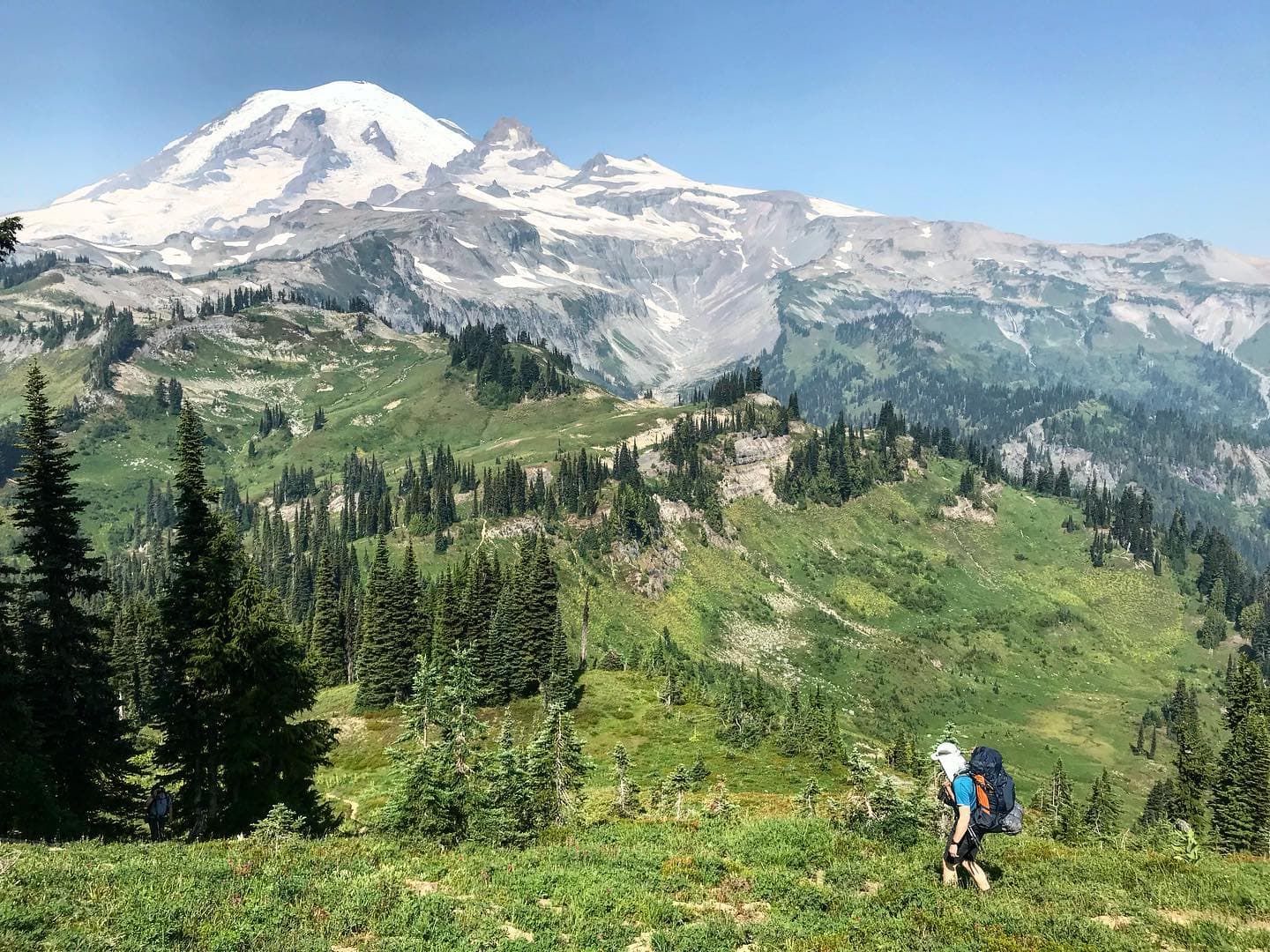
Writer: What do you hope participants will get out of a trip with OutPass Trekking?
Kettles: Our trips are built around personal insight and that is ultimately what I hope all of our trekkers come away with: a better understanding about who they are, what is working and not working in their own life, and an appreciation for what a powerful tool nature can be for peeling back our personal layers. I hope trekkers feel refreshed and clear-minded, more mindful about how they are feeling, and more knowledgeable about techniques they can use to bring mindfulness into their day-to-day lives.
Writer: What have you learned or what has surprised you from the trips you’ve hosted so far?
Kettles: I read “The Power of Moments” probably three times back-to-back before our very first trip because I was so concerned about making sure there was a noticeable – but not too noticeable – ebb and flow to the weekend. I wanted there to be intentional highs, lows, emotional moments, thrilling moments, quiet moments, etc.
What surprised me most about that first trip is that I didn’t need to engineer all of that myself. I actually needed to sit back and trust that the trekkers with me were there to influence their own experience, too. I was shocked at how much the people, the environment, the food and the activities really worked together.
I was also pleasantly surprised at the group dynamic. During the first two trips, I really felt at a loss for how to build community among the strangers who would be gathering for this experience together. It wasn’t lost on me that the intentions and needs of millennials navigating mid-career changes might be very different from the intentions and needs of a trekker trying to gracefully navigate retirement.
To my surprise, having multiple generations present for our trips was a value-add for me and for all the trekkers there. We were able to acknowledge our differences and then learn from them together. Seeing that in action, especially during those early trips where I was really still trying to understand and prove the concept, was so special.
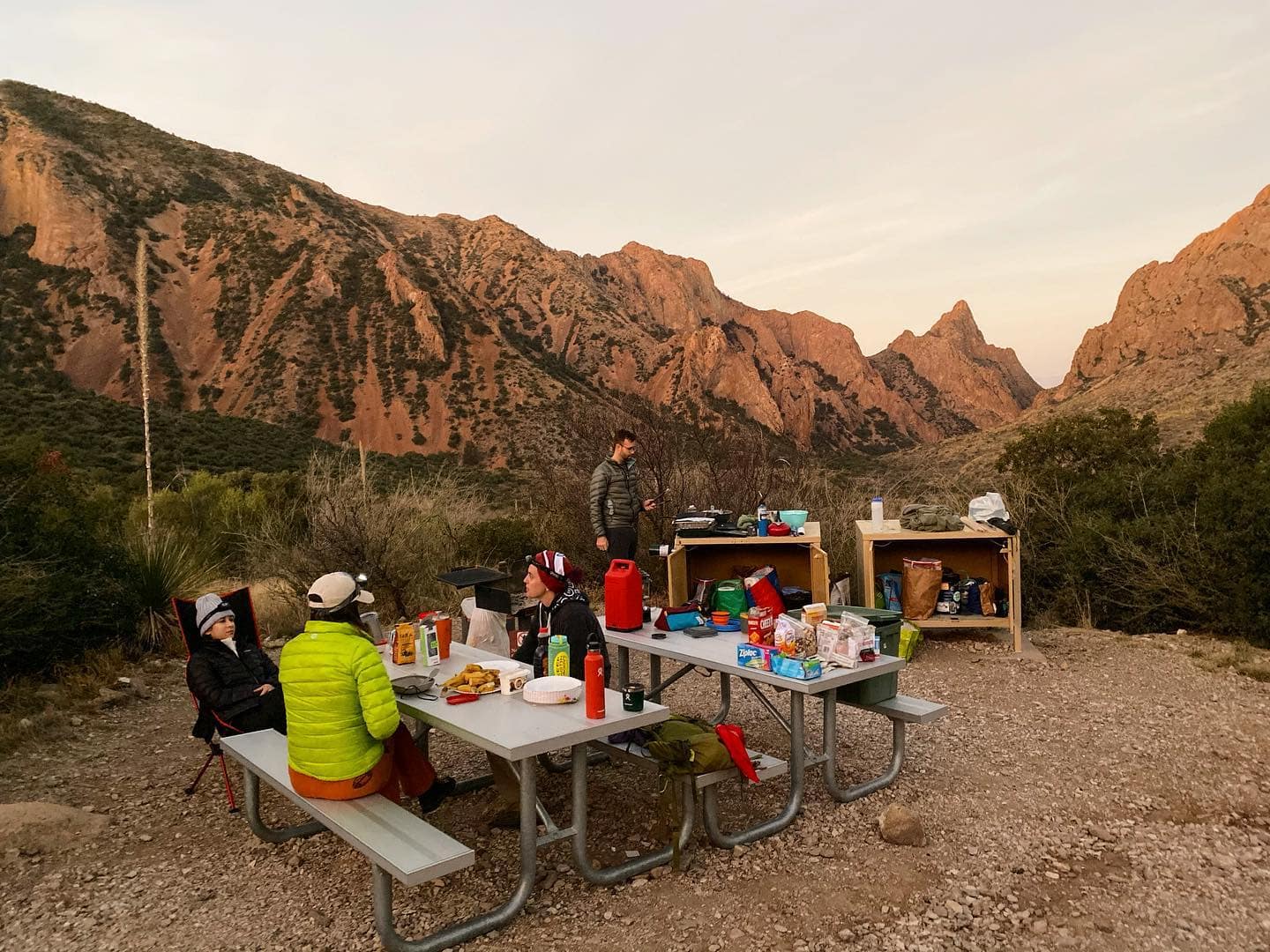
Writer: What advice do you have for people who are nervous about group travel or group retreats?
Kettles: Think about what specifically feels nerve-inducing about group retreats before moving forward. As we all continue to deal with the ongoing effects of the pandemic, it’s totally fair to put your personal comfort first and foremost when planning travel. The great news about outdoor retreats, even the group kind, is that you have a lot of choice, and therefore flexibility and control, over how you experience the retreat.
I know for myself, I’ve had nerves in the past around meeting new people on group retreats and, to my honest surprise, every time I let down my guard and remain open to connections, I make friends and have really meaningful experiences. I find leaning into how connecting the outdoors can be, even among people who don’t seem to be compatible on the surface, is how I help to calm my own fears and embrace something or someone new.
Writer: What would you say to people who are nervous about exploring the outdoors?
Kettles: To anyone nervous about exploring the outdoors, I’d say to first honor the truth there. Being afraid of something is information to be used. I would encourage those folks to think about what makes a scary experience in the outdoors for them and also what makes a positive experience in the outdoors. Then find a way to intentionally maximize the things that feel good, there is always time to explore tenderly the things that scare us.
The outdoors is for everyone, but it doesn’t always feel that way, especially at first. I think it’s important to start where you are comfortable and in a place or doing an activity that lights you up!
More Outdoor Learning
Sign up for Weekend Wanderer to join thousands of readers getting epic travel and gear ideas every week.
Seen in: Backpacking, Lifestyle, Texas

